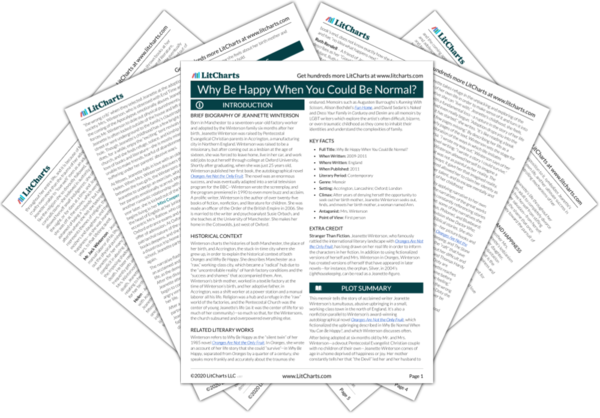AI ToolsNew
Tools to make learning and teaching easier
|
Previous
Chapter 14
|
Why Be Happy When You Could Be Normal?: Chapter 15 Summary & Analysis |
Next
Coda
|


Upgrade to unlock the analysis and theme tracking for all of Why Be Happy?Why Be Happy When You Could Be Normal?!
Get LitCharts A+